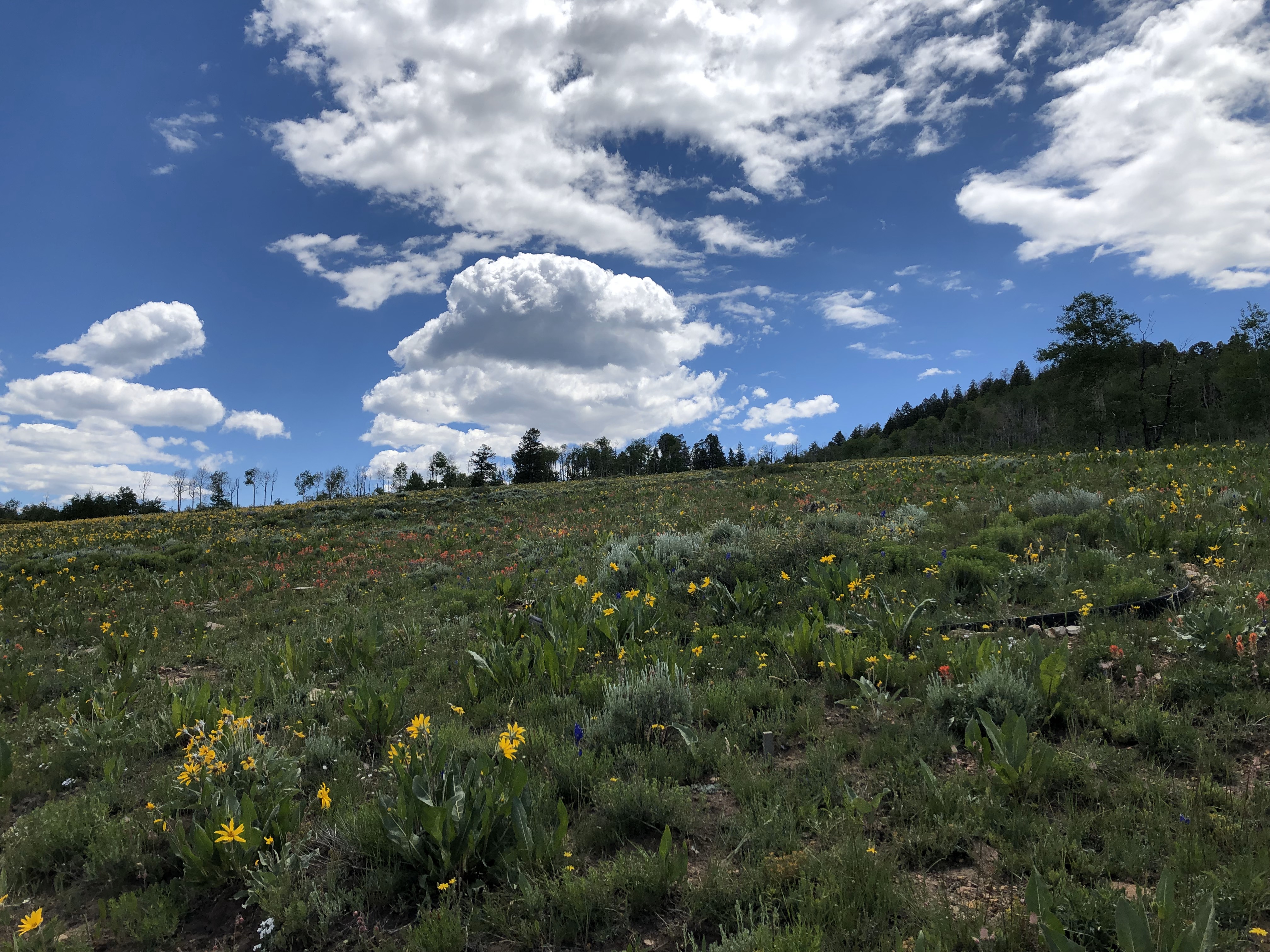Smith Lab News
December 3, 2021: What a great semester!!
The 2021 Fall semester is coming to a close and what a semester it was for the lab!
Here is a brief recap of some of the accomplishments:
Postdocs: It was awesome to have Jeff Chieppa join the lab this semester.
Jeff was able to get a number of project off the ground, including the development
of a NutNet add-on project (complete with fancy maps!). Jeff also was instrumental
in helping to mentor less senior members of the lab. Additionally, Brad Posch
(postdoc starting next year) was abe to sit in on a few lab meetings and share
some of his past research and future plans once he makes it up to the Northern hemisphere.
We can't wait!
Graduate Students: Evan Perkowski continued finding answers to how plants acclimate
to variations in soil resources. He had a
paper
published earlier this year examining carbon costs to acquire nitrogen and helped mentor
Joseph Terrones (undergrad) with a followup experiment. Look out for more papers from Evan next year!
Zinny Ezekannagha started her PhD this semester and has already developed a proposed
plan for her thesis examining the intricacies C4 photosynthesis (no small feat!).
Evan and Zinny did all this while also teaching classes. Great job!
Undergraduate Students: The undergrads in the lab were unstoppable this semester!
Morgan Appell and Joseph Terrones each started daunting research projects. Morgan
is examining ecosystem-scale consequences of nutrient addition at the lubb.us
NutNet site. This included weekly measurements of soil respiration, soil moisture, soil
temperature, and canopy light interception, as well as seasonal litter decomposition.
So many things! Joseph designed, set up, and carried out a greenhouse manipulation experiment
with innoculated and non-innoculated soybean grown under different fertilization treatments
to examine how the treatments impact carbon costs to acquire nitrogen. Both Morgan and
Joseph will be working on writing up and presenting their results next semester. Additionally,
the BIOL 4100 crew helped a lot with everyone's projects see more below.
Way to go undergrads!
Technicians: Where would we be without our technicians? Risa McNellis
provided computational support for a number of different projects, writing code, assembling
datasets, and publishing data and code. She is making our researcher stronger and more
transparent. Avery Schoenherr and Jose Villeda were constant positive presences in lab and field,
assisting with just about everything. You all are the best!
Visiting scholar: It was great to host Kate Fuller as a visiting
scholar from Australia. Kate taught us all a lot about mapping, spatial analysis, and fire.
We look forward to learning more from her in the future.
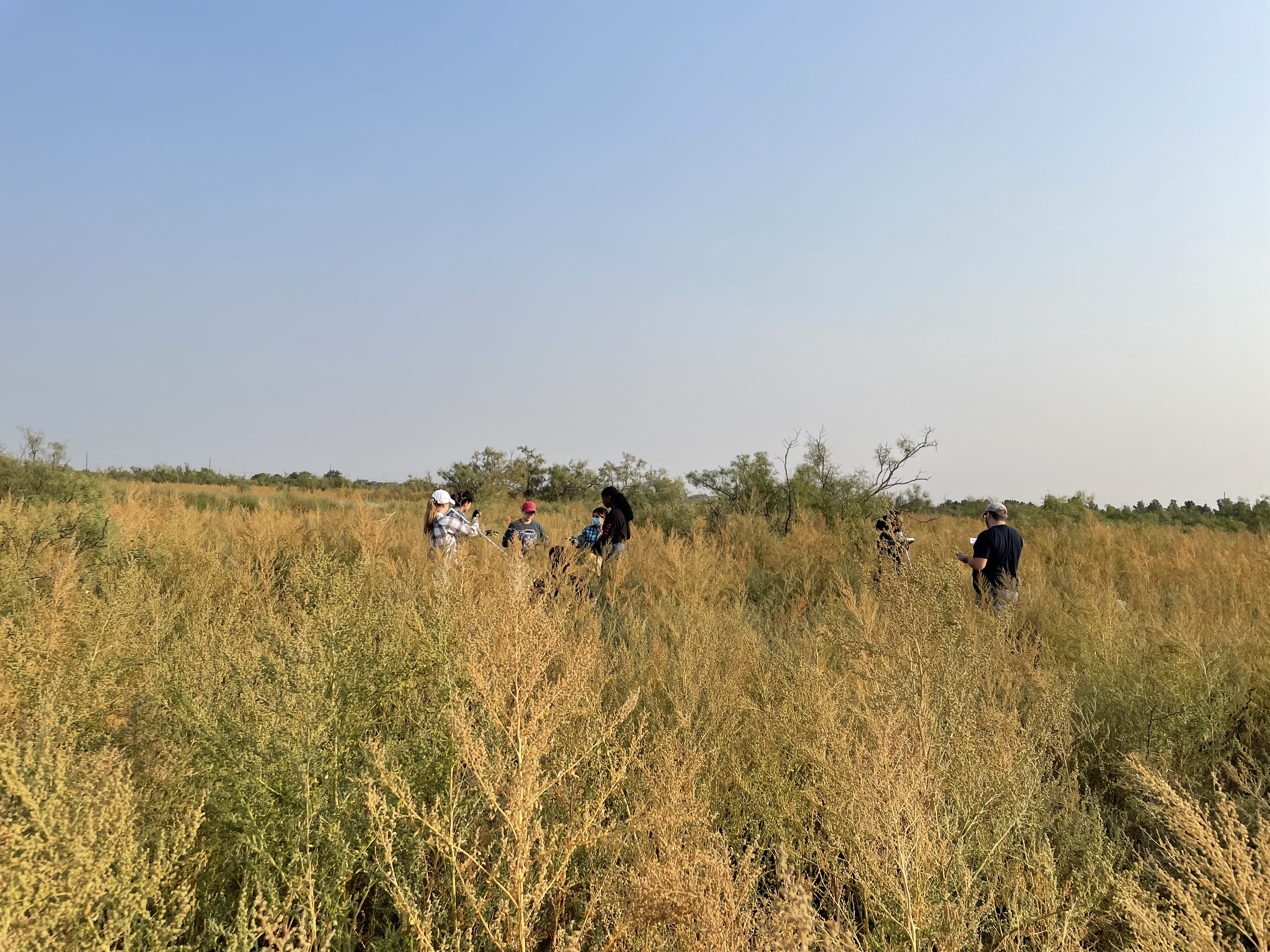
December 3, 2021: First cohort of NutNet undergrads
The semester has ended for the first cohort of undergrads studying the effects
of eutrophication on terrestrial ecosystems through the lens of the Nutrient Network.
Through support from the NSF, Gwen, Malaika, Hannah, Destiny, and Daniel spent the summer
learning about and leading research on eutrophication. They read papers, did field and lab sampling,
and kept journals about their experiences. They even prepared proposals for possible
future projects. This was a great group of budding future scientists. We can't wait
to see what they do next!
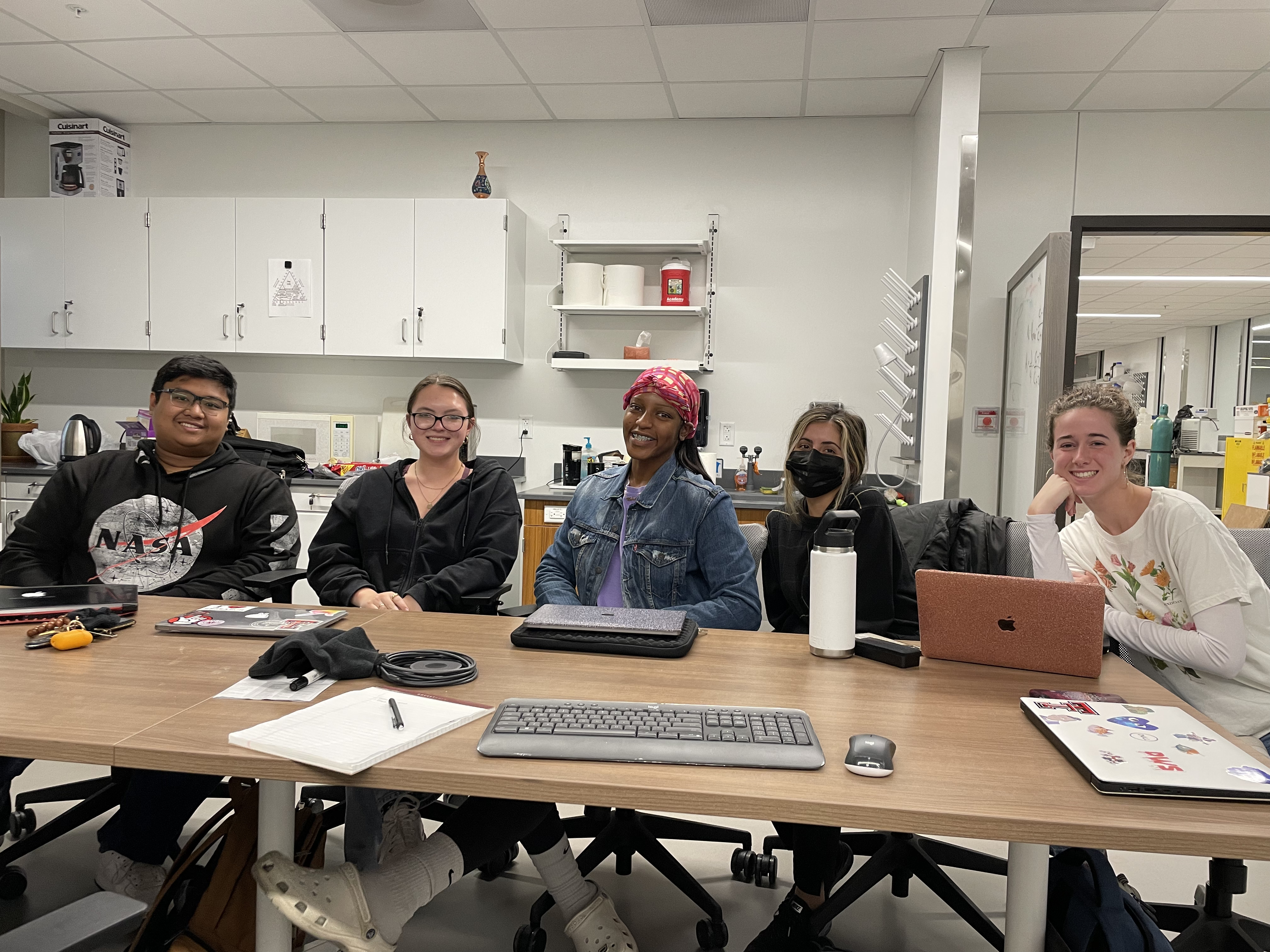
September 21, 2021: 2021 NutNet harvest!
Last week, 10 members of the lab helped to do our annual harvest of the Lubbock
Nutrient Network site. As part of this, we clipped biomass, measured community composition,
and measured light through the canopy. We also took measurements of plant height
and collected soil for different add-on projects. The plants at the site, particularly the
Salsola and Chenopodium, were quite productive. All together it was a lot of work,
but made the tacos afterwards taste all the better!
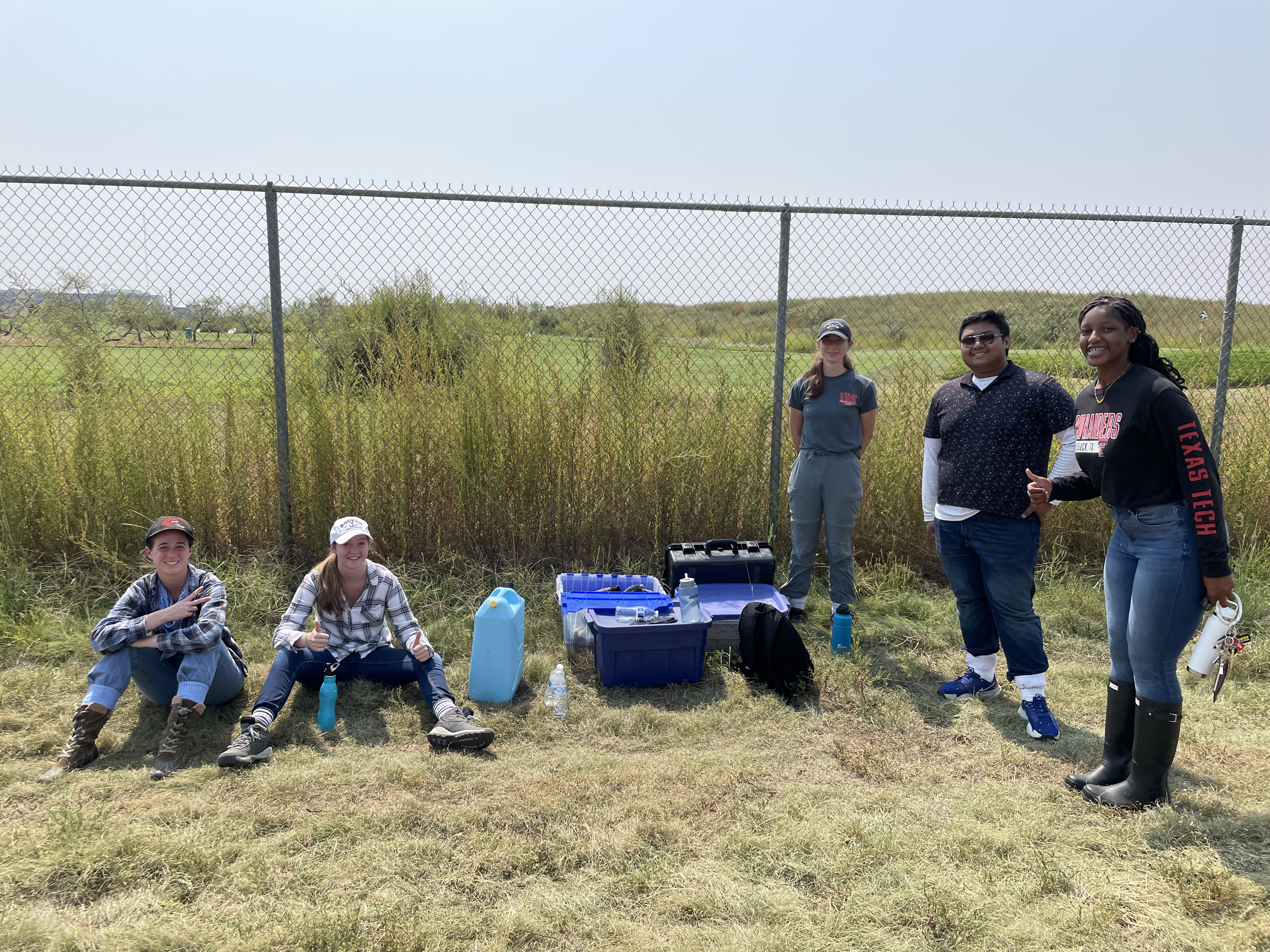
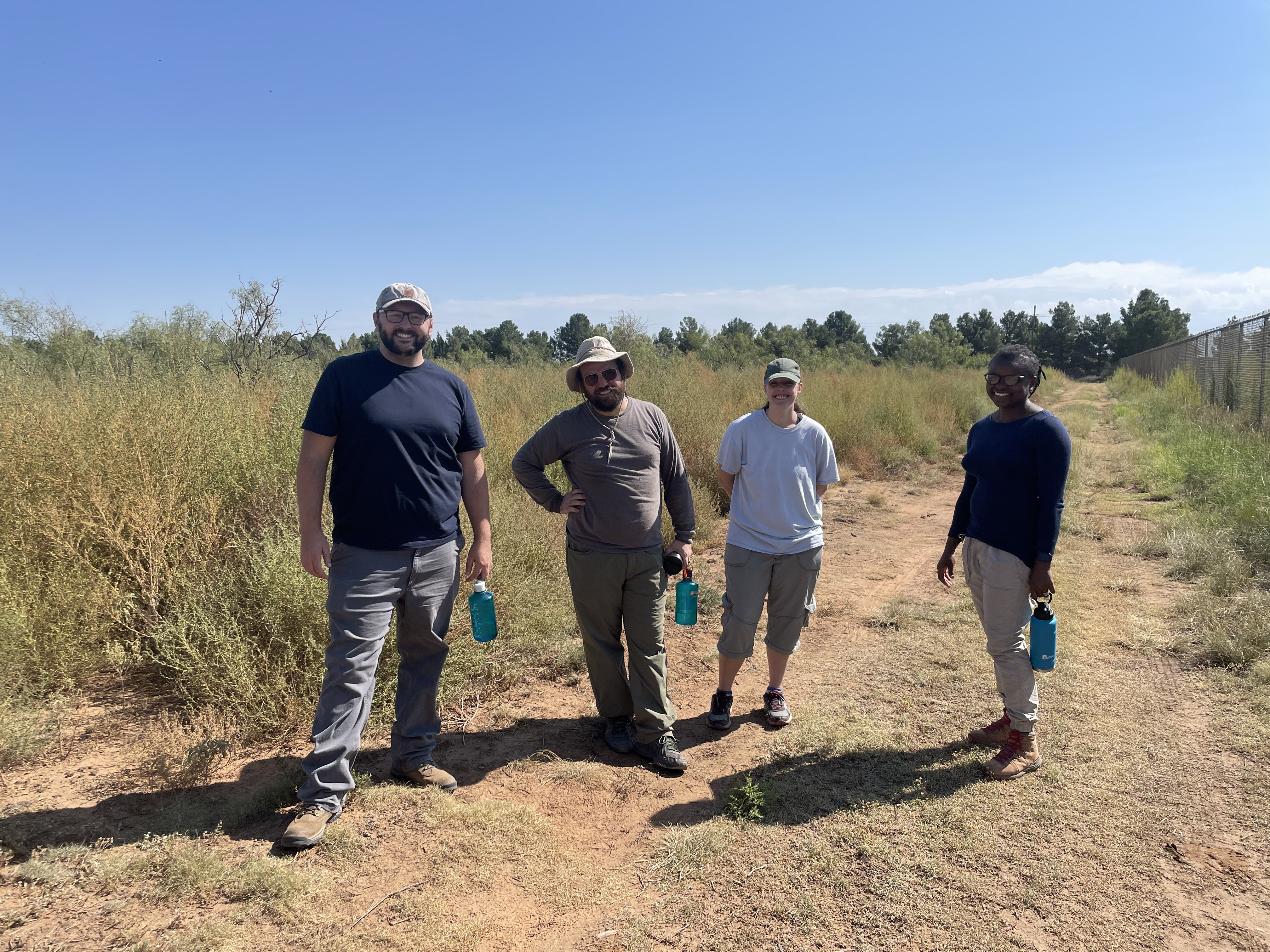
July 25, 2021: The lab is looking for new graduate students
The Smith Ecophysiology Lab at Texas Tech University is looking for new
Masters and PhD students to join our group in Fall 2022. We are looking for
students interested in understanding the mechanisms underlying plant physiological
acclimation to global change and the resulting impacts these processes have on
future Earth system dynamics. Prospective students should have a background in plant
physiology, plant ecology, Earth system science, or similar field. More information
on the lab can be found at smithecophyslab.com. Students are encouraged to have a
look at recent publications from the lab prior to applying.
Further informatioin about the positions and how to apply can be found on the
opportunities page and in the ad below.
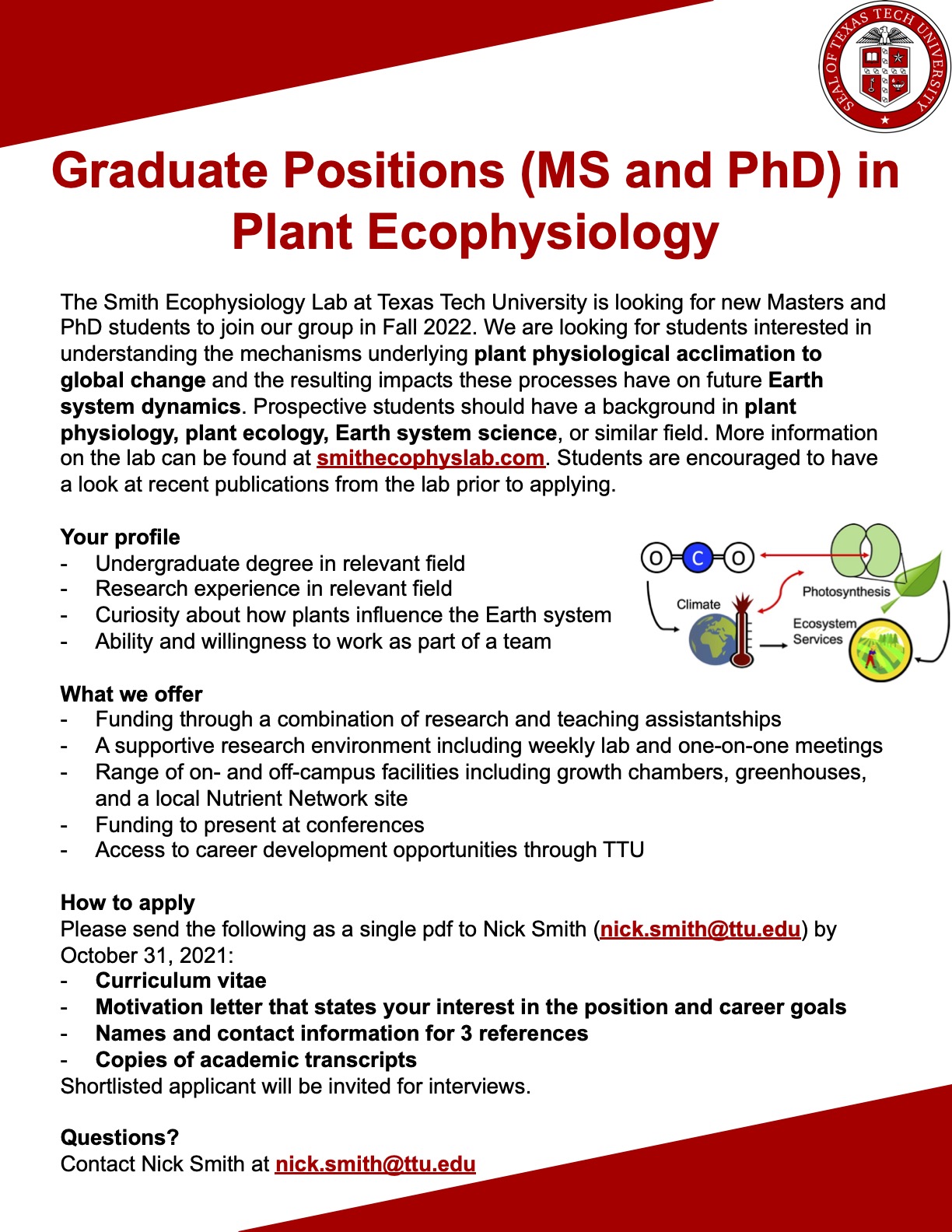
April 12, 2021: Abigail's paper published in Rangeland Ecology & Management
Former lab undergraduate research student, Abigail Bell, had her first authored
paper from her time in the lab published in
Rangeland Ecology and Management.
The paper examines changes in growth and nutrient status of four forage grasses to
a soil salinity gradient. Abigail found that the responses were highly species specific.
By outlining these responses, the paper provides recommendations for species selection
by land owners looking to restore saline lands.
You can access the full paper on the journal's website at
https://www.sciencedirect.com/science/article/pii/S1550742421000348.
Congrats Abigail!!
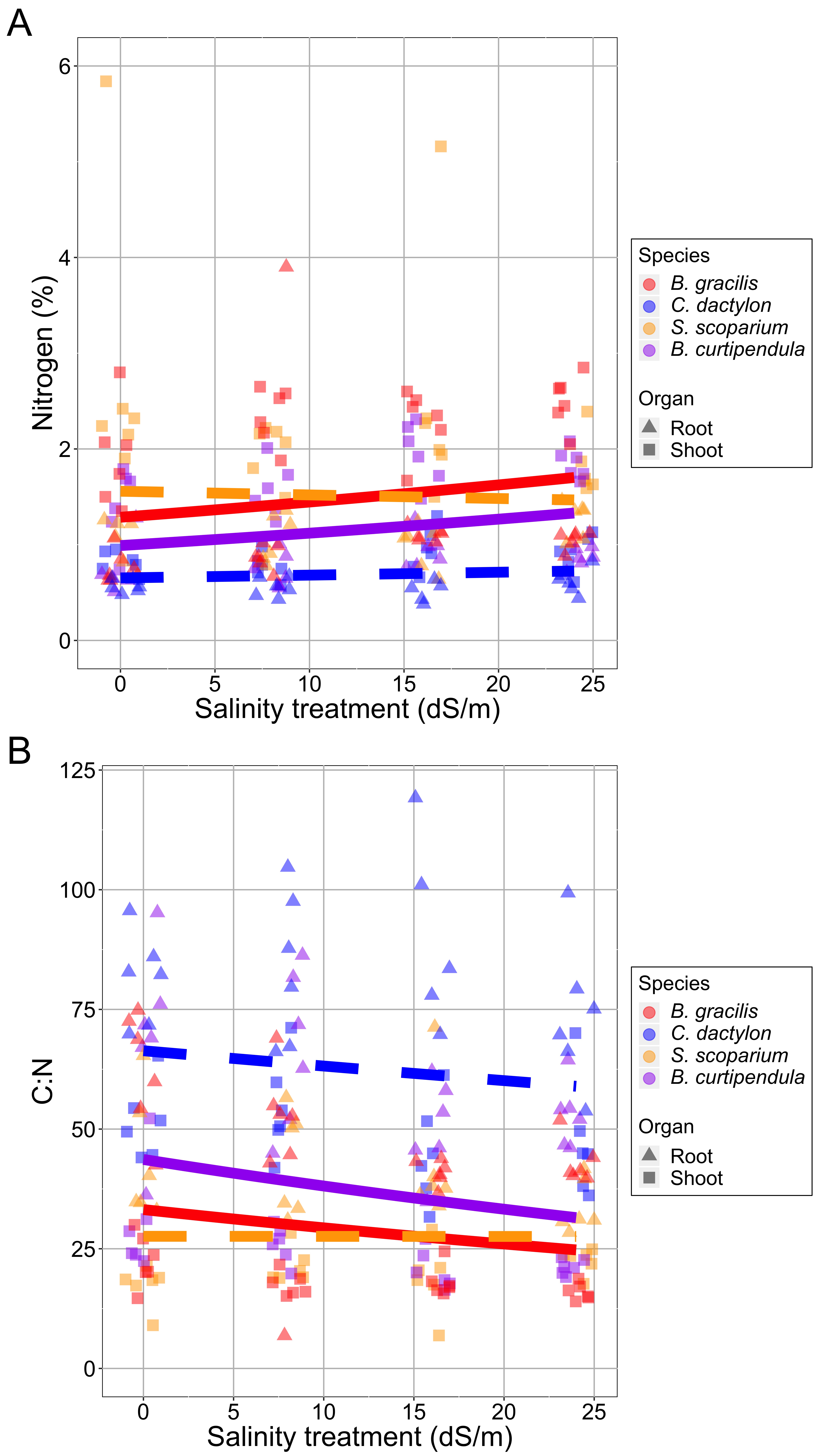
April 10, 2021: Fieldwork!!
After a long hiatus, the lab made it out to the field today to fertilize our Nutrient Network sites. It was a beautiful day and we had lots of fun trampling through the spring prairie.
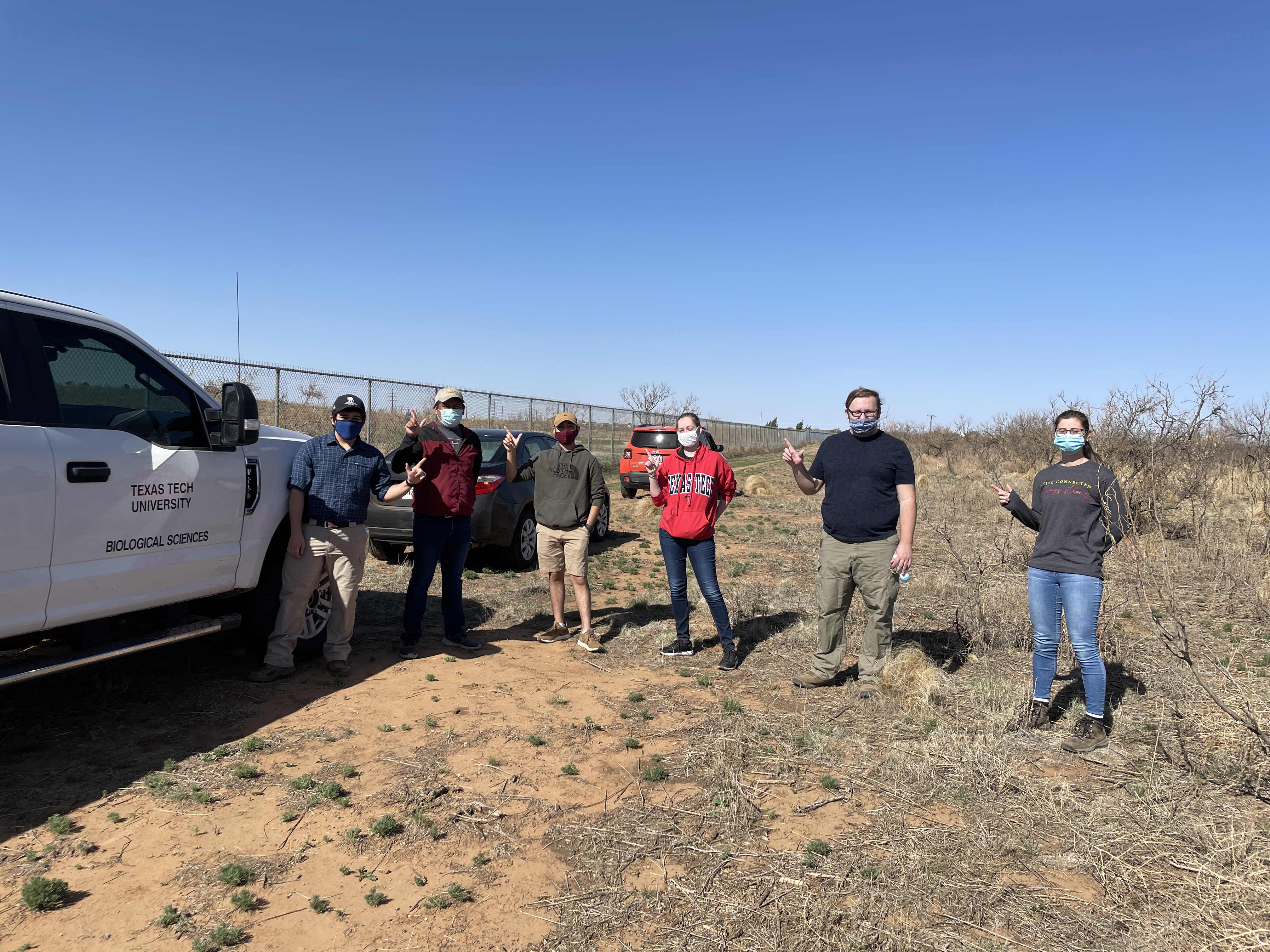
March 24, 2021: New paper out in Ecology Letters on the impact of an allelopathic invaded on plant economic traits
Nick collaborated with a group of researchers from the University of Tennessee,
led by Lalasia Bialic-Murphy, to examine the impact of an allelopathic invader
on plant economic traits. The invader, garlic mustard (Alliaria petiolata).
The allelochemicals produced by garlic mustard disrupt the native plant-fungal symbioses.
This disruption caused shifts in the plant economic traits suggesting that invasion
was increasing the cost of nutrient uptake by the native plants. In response, the plants
shifted to a greater water use to maintain carbon assimilation at a lower nutrient use.
These shifts are predicted by least cost theory. The study is one of the first to
show these dynamics playing out in an invasion context.
You can find the paper in
Early View at Ecology Letters.
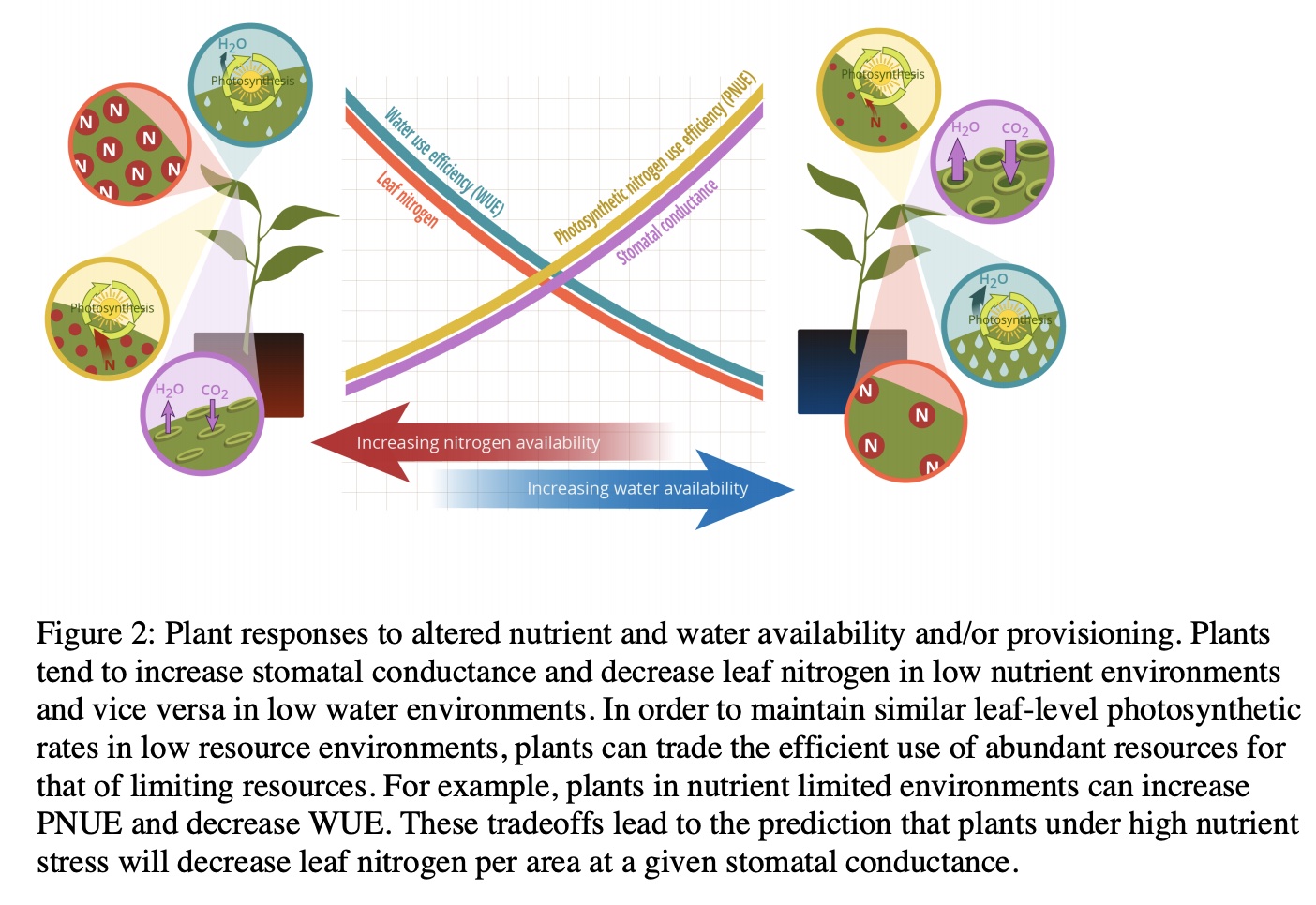
March 9, 2021: Jose presents his honors work on herbarium leaf C:N
Lab undergradaute student Jose Villeda created a
YouTube presentation detailing
the results of his honors thesis work examining the drivers of leaf carbon:nitrogen
rations (C:N) in herbarium samples from the Guadalupe Mountains National Park.
Jose found that elevation was the strongest predictor of C:N, with trends
following those expected from theory. Specifically, he found that increases
in elevation increased leaf investment in N, resulting in lower measured
C:N, regardless of plant type.
Bravo to Jose, for completing his first conference presentation. Also, he put it together
despite a short timeline (3 weeks less than anticipated!). Throughout the rest of
the semester, we hope to bolster the dataset by sampling more specimens. The data
will be combined with other trait data on stomata, as well as DNA information.
We hope to get out to GUMO later this year to do a resampling. Given that the original
samples were from the 1970s, this will give us a really cool snapshot of how
plant functional traits have changed over time at the park!
You can view Jose's presentation at
https://www.youtube.com/watch?v=TPK8tCn34Ho.
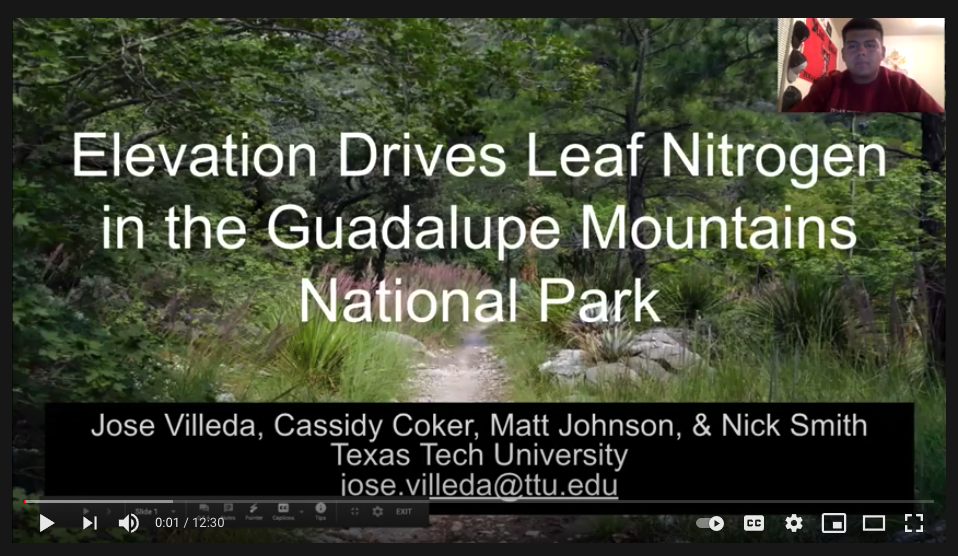
February 24, 2021: The lab is looking for a new postdoc in plant ecophysiology!
The lab has a funded postdoctoral research assistantship in plant ecophysiology. For more information, please check out the Opportunities page as well as the the full job ad, which has details on how to apply.
January 1, 2021: Last year in review
2020 was definitely an odd one.
Despite the difficulties brought on by the pandemic, we were able to keep sciencing,
albeit at a slightly reduced speed. Some highlights include
Risa successfully defending her thesis!!
8 new publications,
lab group member presentations at virtual versions of ESA, Botany, Plant Biology (ASPB),
and AGU conferences. Well done all!
On to 2021!
